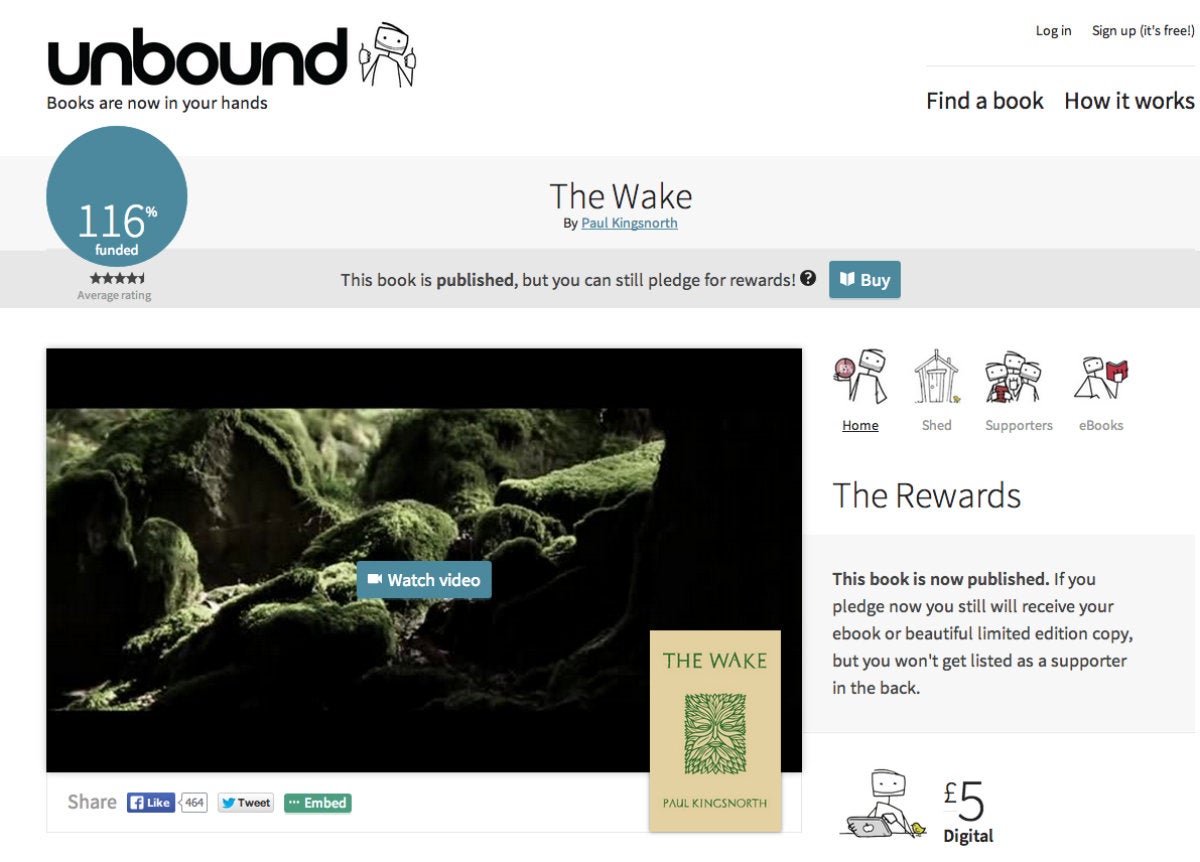This year’s Booker long list features a big surprise: a crowd-funded novel
Hilary Mantel, Howard Jacobson, Julian Barnes, Mantel again. The Man Booker Prize, the most significant award in the British literary calendar, has rewarded the heavyweights in recent years. This is partly because of the submission guidelines. And partly because literary culture is like that.

Hilary Mantel, Howard Jacobson, Julian Barnes, Mantel again. The Man Booker Prize, the most significant award in the British literary calendar, has rewarded the heavyweights in recent years. This is partly because of the submission guidelines. And partly because literary culture is like that.
Maybe not forever.
On the just-announced long list for the 2014 prize, there was one name that jumped off the page: Paul Kingsnorth’s The Wake, which has become the first crowd-funded novel to be nominated.
Kingsnorth’s book, about England after the Norman Conquest, was published by Unbound, a Kickstarter of sorts for the publishing worlds. Established in 2010 by a trio of authors and publishing execs, it invites authors to pitch ideas on the site. If it likes them, readers are encouraged to put up cash to support their creation, in exchange for a credit, a deluxe edition or lunch with the author. When the costs for an initial print run are met, Unbound takes over and publishes the book. The firm pledges to split profits with the author equally, more generous terms than are typically offered by mainstream publishers. It also focuses on books with short print runs, of 5,000 copies or fewer, an area of the market that has become badly squeezed by the discounts demanded by both Amazon and bricks-and-mortar retailers.

But for Unbound to succeed there is an intangible but awkward obstacle to overcome: credibility. According to Tom Tivnan, features editor of The Bookseller, almost one-half of the 184,000 books published in the UK in 2013 were self-published. Inevitably, not all of these titles have literary merit. And many of those that do are lost in the morass. This means that self-published or crowd-funded projects still carry the suspicion of not being good enough for major publishing houses.
The feeling that there might be diamonds in the rough puts the Booker panel of judges, a six-strong group of literary luminaries, in a tricky spot. They accept that the prize has to recognise new publishing methods if it is to continue to identify the most exciting writing, but the relevance of the prize depends on the strength of its shortlists. For now, the Booker excludes all self-published works, partly for logistical reasons. Unbound squeezes under the barrier as it looks enough like a regular publisher. Consequently, Kingsnorth’s nomination will prove a boon for an innovative publishing company, and a prize that is keen to look innovative.
Follow Mike on Twitter @mikejakeman. We welcome your comments at [email protected].